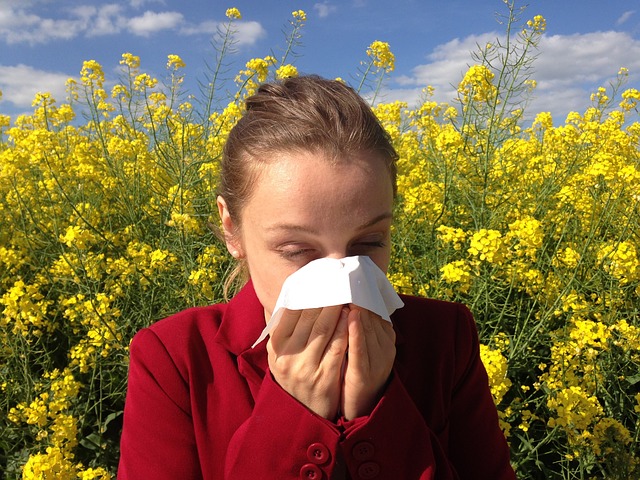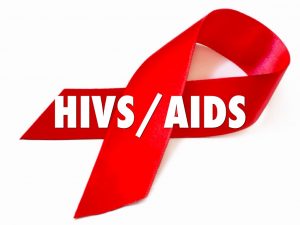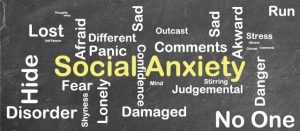
The subject of allergies came up in conversation the other day and it set me to wondering why it seems that so many more children, and adults now, are suffering from this problem than myself and others when I was growing up.
I saw a program not long ago where this concern was discussed, and that medical scientists and researchers had discovered that one of the initiators occurred during birth.
Mostly related to caesarean births, due to the fact that as baby didn’t go through the birth canal, (s)he didn’t get the immunity boost from mother. This, it was believed had a real impact on the likelihood of the child developing allergies.
Another point raised was that there is too much emphasis placed on cleanliness with ALL germs, good and bad, being zapped by whatever means at source. Thus there is much less chance of natural immunity being built up through exposure of children during early childhood years.
I still remember, and in fact used the phrase myself when I had my children, “you have to eat a peck of dirt before you die” quoted from my maternal grandmother who lived the ripe age of 86. A phrase that eased my own concerns when my daughter sat in the garden with her mouth so stuffed with soil she couldn’t close it. And when my son picked up disgusting (to me), worms and insects with the clear intention of snacking on them.
Thankfully, neither of my children OR their children suffer from allergies, for which I am profoundly grateful. Still, enough fluff, what are the proofs of all this?
The newborn’s immune system grows fast from a small size at birth by exposure primarily to the intestinal microflora normally obtained from the mother at and after birth.
The second mode of transfer of immunity occurs via the mother’s milk. Numerous major protective components, including secretory IgA (SIgA) antibodies and lactoferrin, are present. The breastfed infant is better protected against numerous common infections than the non-breastfed. Breastfeeding also seems to actively stimulate the infant’s immune system by anti-idiotypes, uptake of milk lymphocytes, cytokines, etc. Therefore, the breastfed child continues to be better protected against various infections for some years.
In this study I read, they found that de novo production of neonatal lymphocytes was associated with mode of delivery and other perinatal characteristics. Compared to vaginal delivery, CS (Caesarean Section) was associated with 32% higher risk of having an infant with a lower number of newly formed T-lymphocytes (TREC values within the lowest quintile). Accumulating evidence links early fetal-neonatal living conditions to later health in adult life [36]. Recent epidemiological studies have confirmed that CS is associated with a moderately increased risk for immune disorders later in life, also after taking potential confounders into account.
Preterm born infants have functional deficiencies in their immune system and are more vulnerable to infections. The fundamental mechanisms of the innate immune system and how immaturity contributes to the overall risk of infection during the neonatal period are not completely understood, but preterm birth is considered the largest risk factor for infections during the neonatal period
In conclusion, I believe this study provides another piece of knowledge on the establishment of immune function at birth and its relation to various perinatal risk factors, such as gestational age, mode of delivery and birth weight.
The rapidly increasing rates of CS worldwide and the greater risk for immune disorders later in life add fuel to efforts trying to resolve these issues. Our study has identified several important risk factors for a reduced number of T- and B-lymphocytes in newborn infants, and CS delivery without a clear medical indication may be the one that can be modified most rapidly.
We live in an age of cleanliness.
Our soaps are antibacterial.
Our household cleaners promise to kill 99.9% of germs. Microbes are bad, plain and simple.
But at the same time, some scientists also tell us that being too clean is also wrong because it might help cause asthma and allergies.
Today, many scientists argue that people have become “too clean” for their own good.
In 1989, the British epidemiologist David Strachan was the first to suggest that the exposure to infections during childhood would provide a good defence against allergies in later life. An allergy is, in fact, our immune system going haywire, by perceiving a harmless substance as a major attack. Our bodies, says Dorothy Matthews, the biologist at Russell Sage College in Troy, New York, may overreact to beneficial microbes, because our immune systems have forgotten how to live with them.
Take a baby’s dummy that’s fallen to the floor. It’s better for the mother to suck it clean rather than provide a new sterile one, he says, because this has been shown to accelerate development of the infant’s microbiota, and reduces allergies.
And while we might think dogs are dirty, they also help most of us to increase microbial biodiversity and reduce allergies.
“Let your children play in places where they have contact with soil and vegetation, which are rich in beneficial microbes” – Ilkka Hanski
Around the house, the solution for fighting the wrong kind of bacteria is not excessive cleaning, but timely cleaning. Take chopping boards in the kitchen. If you cut your greens, it’s OK to wait until after dinner to do the washing up. Not so if you’ve chopped raw fish or meat. Instant action is required, or you could put your family at risk of infection.
After all, it’s well established that about 70% of all chicken are contaminated with Campylobacter, a bacterium which can cause food poisoning and will happily multiply on your chopping board.
Studies show the benefits. Children who grew up in an environment that was not obsessively clean have lower rates of allergy and asthma. And certain bacteria also actively protect us from bowel disease and even some types of anxiety and depression.
On the plus side, says one commentator, you can take heart in knowing that every time you get a little sick, you get a little stronger. “The message is not one that most people want to hear: they want the quick pharmaceutical fix for the slightest bit of discomfort. But every time you take the quick fix, you make your body a little weaker.” That’s something to remember the next time you’re tempted to slather on the shower gel.
With thanks to the following research articles.








